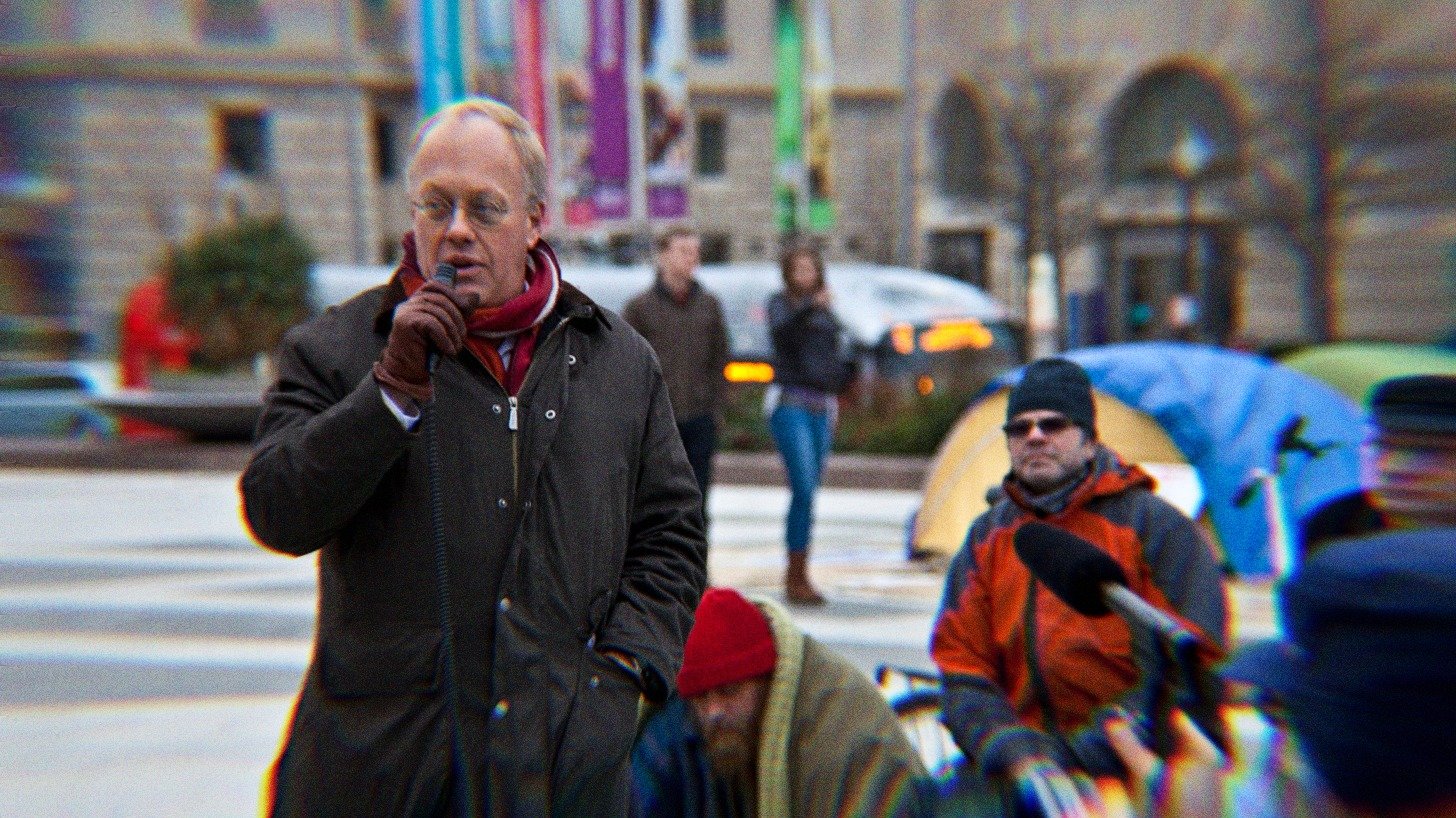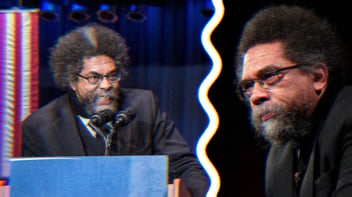Progressive Spotlight: Chris Hedges.
The Corporate Coup d'État.
 Image Description: Chris Hedges Speaking at an event.
Image Description: Chris Hedges Speaking at an event.
To many people on the left, Chris Hedges needs little introduction.
For them, the veteran journalist has influenced their understanding of social and political issues perhaps more than any other writer or political commentator, having dedicated his career to exposing the United States’ political duopoly, the corporate takeover of American institutions, global wars, and how capitalism is anathema to achieving true democracy.
That Hedges is such a trusted source can partially be attributed to his vocal criticism of an industry in which he made his name: Corporate media. In the early years of his career, Hedges worked at some of the most influential media outlets in the world, including The New York Times. To his credit, the former war correspondent and prolific author is the rare reporter to emerge from corporate media only to become one of the leading independent journalists in the country and eventually parlay that into a successful career as an author, host of his own news show, and public speaker.
Hedges’ writing is so thoroughly at odds with the cookie-cutter coverage in most mainstream outlets that it’s surprising he once moved in those circles. But rather than falling prey to the type of access journalism that has poisoned our political discourse, the Pulitzer Prize winner has dedicated his work to lifting the veil on the evils of unfettered capitalism and the harms associated with the corporate takeover of political and social life, or what refers to as the corporate coup d’etat.
Among the many themes of Hedges’ work centers around the illusion of political power.
Here’s Hedges talking to News Beat about the incestuous nature of America’s two-party system:
“Is the Democratic party anyway represented of the left? It’s not even representative of the traditional liberal establishment,” Hedges said. “Any other country in Europe, it would be a far-right party. The Democratic party has worked in tandem with the Republican party to eviscerate civil liberties, explode our system of mass incarceration, ripped down the firewalls between investment and commercial banks, destroy social service programs, such as welfare, and of course mount this relentless campaign against, primarily poor people of color by militarizing police in the name of law and order.”
“So I’m just stunned election cycle after election cycle when self-identified liberals and self-identified members of the left, place their hope in the Democratic party machine, which doesn’t even function if you examine it as a political party,” he added. “It’s not a functioning political party. It’s corporate money, mass mobilization. People who attend conventions or rallies are a little more than pawns, and certainly have no say in the decisions made by the party. Self-selected candidates. If you took away all of the dark and corporate money, all of the Democratic party leadership, Pelosi, Schumer, Clintons, it wouldn’t exist.”
As for his political leanings, you’d be hard-pressed to hear Hedges invoke a particular political label. Is Chris Hedges a progressive? Well, if you consider his critiques of capitalism, erosion of civil liberties, concerns over ecological destruction and climate change, his work on mass incarceration and systemic racism, and his anti-war message, then yes, Hedges would seem to align with core progressive values.
With the corporate control of our institutions quickly metastasizing, mass surveillance systems further infringing on our civil liberties, and the social and political breakdown caused by Western imperialism, Hedges’ work remains as important as ever. Given his extensive history of reporting from dangerous conflict zones, Hedges is uniquely capable of contextualizing today’s horrors. It’s also why his commentary on Israel’s genocide of Palestinians is so critical.
It’s also no surprise that many first came to learn of Hedges during the Occupy Wall Street movement and the so-called war on terror. Twelve years ago, Hedges, along with the late Pentagon Papers whistleblower Daniel Ellsberg, famed linguist Noam Chomsky, and four others—collectively dubbed “The Magnificent Seven”—sued the Obama administration over a section in the National Defense Authorization Act (NDAA) they feared could lead to the indefinite detention of U.S. citizens.
Standing outside a federal courthouse in Manhattan on Feb. 6, 2013, Hedges went on the offensive, receiving rapturous applause.
“The deterioration of civil liberties under the Obama Administration has complete continuity with the attack on civil liberties under the Bush Administration,” Hedges bellowed.
“There is no impediment left to corporate power,” he added. “And the corporate state understands, that as the economy continues to deteriorate…there will be inevitable blowback on a betrayed population. And what’s happening in this court now is the last thin line of defense between protecting what is left of our anemic democracy and the imposition of a military state.”
As Hedges can attest, the decline of democracy didn’t begin with Donald Trump. The former president is yet another symptom of a horrific disease. The cure? Real political power.
Read Hedges. He’ll tell you all about it.
Image Source
- Justin Norman, CC BY-NC-SA 2.0 DEED, via Flickr. Changes were made.
Rashed Mian is the managing editor of News Beat. Mian previously covered civil liberties and the Muslim American community for Long Island Press. Mian graduated with a degree in journalism from Hofstra University. Mian is interested in under-reported stories that impact disenfranchised communities as well as issues related to civil liberties.


